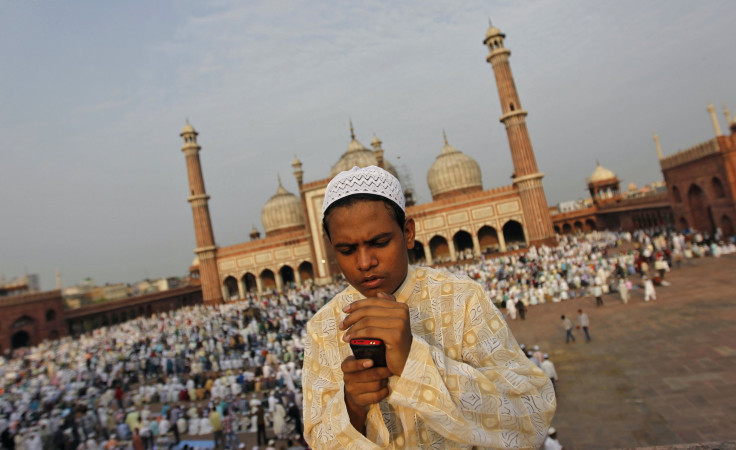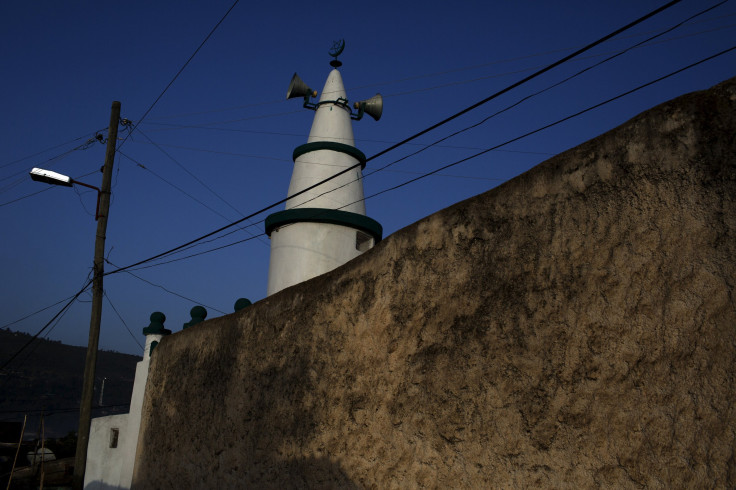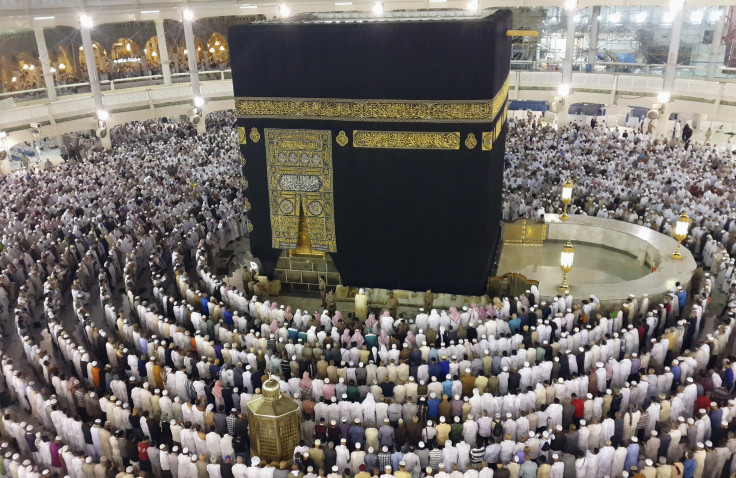Ramadan 2015: 5 Free Apps For Islamic Prayer Times, Fasting Calendar, Sunrise Sunset Alarms, Mecca Compass

Technology is rapidly becoming a valuable tool for Islamic observance and many Muslim faithful have increasingly been turning to smartphone apps to help them fulfill religious obligations. With the holy Islamic month of Ramadan approaching in mid-June, the utility of such apps in supporting the spiritual and practical elements of the 30-day fast make them an especially useful option for some.
Religious apps have become particularly popular among young Muslims, according to Imam Abdelghani Benyahya of the Muslim Center of New York. Many worshippers at his Queens congregation already use basic smartphone features like pre-programmed compasses to calculate the direction of Mecca (where Muslims face to pray). But younger members of Benyahya’s mosque have also become reliant on specialized apps that do everything from calculating prayer times to providing opportunities for volunteer work and charitable giving, one of the five pillars of Islam.
During Ramadan, when observant Muslims fast from sunrise to sunset, knowing the exact time you can begin to eat is another significant imperative. The dependence of the month-long celebration on the cycles of the sun and the moon, the latter of which determines the start date of Ramadan, has resulted in a flourishing market of apps that precisely calculate these measurements based on a user’s location. Earlier this week, the founder of the Dubai-based Cafe Scientifique astronomical association even made a point of recommending such apps so that Muslims could check for themselves when Ramadan will begin.
Below is a roundup of five of the most popular and useful free apps for the Islamic holy month.
Ramadan 2015:
An all-in-one Ramadan toolkit, this popular app not only features a calendar for the holy month, including prayer times, but also the ability to modify prayer times based on different locations for convenience during travel. The Android app also has a feature that sends a reminder about charitable giving, also known as Zakat al-Fitr, an obligation for Muslims during Ramadan.
iQuran:
Islamic tradition holds that Ramadan was when the Quran was first revealed to the Prophet Muhammad and, as a result, many Muslims use the month as an opportunity to read and recite their holy book. This tradition has made the iQuran app, which offers the full text and audio of the Quran along with an English translation, tremendously popular among many congregants, according to Benyahya. “People use it a lot,” he said. “It’s very much going to be used and exhausted during Ramadan.”

Islamic Finder’s Athan Prayer Timings:
Muslims are obligated to pray five times a day, at pre-set intervals with times that change according to the season. One of the most popular prayer time calculator apps, the Islamic Finder app allows users to track daily prayer times, log their prayers in a personalized prayer book and even offers directions to nearby mosques. The app also has a prayer call alarm feature (with the option of switching to vibrate mode) that can help alert users to the sunset and sunrise which mark the start and end of fasting, respectively.
The popularity of these apps has enabled some Muslims to become even more devout in their religious practice. "If you forgot to pray, you might not be responsible, because you're human; you forget and you can make it up later," said James Otun, a 35-year-old American technology aficionado, in an interview with the Guardian. "But not now that you have those apps, that might change things in God's level."

Qibla Compass:
Knowing when to pray is one crucial aspect of Islamic prayer. The other is knowing in which direction to pray. Apps like Qibla Compass are dedicated to helping Muslims figure out the direction of Mecca, which Muslims around the world face as they pray. While some can usually calculate the direction by using the compass feature on their smartphones, this app does the calculation automatically based on a user’s location. The app also comes with accessibility support for people with visual impairments.
Ramadan Kareem:
Ramadan has traditionally been a time of spiritual reflection for Muslims, who give up food and drink during the sunlight hours and avoid vices like gossiping throughout the month. In addition to striving for spiritual purity, the sense of deprivation fostered through fasting is also meant to inspire charitability.
This is why many Muslims use the month as an opportunity for charitable giving and volunteer work. The Ramadan Kareem app by the Muslim Giving Project, is designed to facilitate this important obligation by connecting Muslims to civic organizations and projects that they can donate to or get involved with as a volunteer. The app also provides daily charity inspirations throughout the holy month.
© Copyright IBTimes 2024. All rights reserved.






















